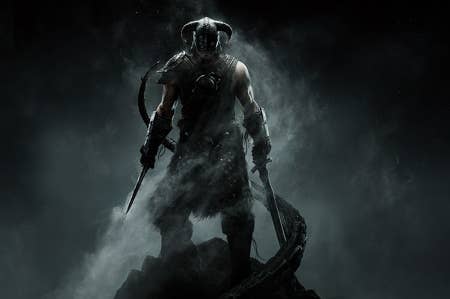Cousins predicts "free-to-play equivalent of Skyrim" in two years
Ngmoco Sweden boss expects F2P dev budgets of $1bn, companies hitting market caps of $100bn
Ngmoco's Ben Cousins has predicted a free-to-play equivalent of a high-end single-player experience like Bethesda's The Elder Scrolls: Skyrim in the near future.
Speaking at the Free-2-Play Summit in London today, Cousins described the past, present and future of the free-to-play business model in terms of three versions: 1.0, 2.0 and 3.0.
Version 1.0 is essentially the model that was established in Korea in the late Nineties with games like Kart Rider, where in-game transactions were limited to cosmetic and customisation items, and faster levelling. With 1.0, the average lifetime value of a user was $5.
A game like Skyrim, where you accrue skills and equipment over time, that you can play for hundreds of hours, is actually one of the easiest games to develop for a free-to-play model
Ben Cousins, ngmoco
Version 2.0 is the model that dominates now, practiced by companies like Zynga, where "unpleasantness" is deliberately added to incentivise the player to spend in order to remove it - a specific building in CityVille, for example, which takes a long time to construct or can be accelerated with a small outlay. With 2.0, the average users' lifetime value reaches around $20 per user.
The future of free-to-play is version 3.0, what Cousins calls the "monetisation super-highway". In this version, there will be no upper limit to the amount players can spend, with every income and taste catered to in-between.
More importantly, the sort of items available for sale will be far more appealing. Under 3.0, in-game purchases will include gameplay features and functions that target positive player responses like excitement, delight and risk-taking. Cousins compares spending money in contemporary free-to-play games to "buying insurance," but that will gradually change in the coming years.
To date, free-to-play games have been limited to a narrow field of genres, and are generally synchronous and asynchronous multiplayer experiences. However, Cousins posits that, with Version 3.0, the goal for free-to-play developers is the sort of experiences that, at present, are almost exclusively found in full-price console and PC retail.
"I believe that single-player will be the next to be cracked in terms of freemium monetisation," he said. "And I'm talking about traditional, story-based, scripted, linear and non-linear single-player that we see on consoles."
Just as storytelling, characters, cinematics and scripting played a more and more important role in console gaming as the technology advanced, it will also enter into the design of free-to-play games. Indeed, in the long-term Cousins believes that, given time, no genre or game-type will be off-limits.
"I am totally 100 per cent confident - I will bet large amounts of money - that we will have, in the next few years, a free-to-play equivalent of Skyrim," Cousins continued. "A game like Skyrim, where you accrue skills and equipment over time, that you can play for hundreds of hours, is actually one of the easiest games to develop for a free-to-play model. That would be a big hit."
I believe that single-player will be the next to be cracked in terms of freemium monetisation.
Ben Cousins, ngmoco
Version 3.0 will push the average users' lifetime value to $60 - the price of a console game at retail. Combine this with the vastly increased number of players and you get game companies with market caps far exceeding the major players of today.
Cousins claims that, "there are now several live free-to-play games that will have billion-dollar lifetime revenues," but the success of, say, Riot Games' League of Legends will be seen as relatively small compared to the most successful products under Version 3.0 - and the same goes for the console industry's biggest franchises.
The "best case scenario" for a console release today is 20 million unit sales at $60, with a development budget of $100 million and a marketing budget of around the same value.
However, the most successful free-to-play games in the future will have lifetime user values of $60 with 200 million players - including emerging markets like India and Africa. Lifetime development and marketing budgets could hit $1 billion each, but the potential revenue will push companies with market caps of $100 billion.
"In the future I believe free-to-play will be the way that nearly everyone plays games, it will be nearly every genre, and it will be nearly every platform."
Cousins has been involved with free-to-play experiences since 2005, when he worked on PlayStation Home at Sony. From there he moved to DICE, where Battlefield Online and Battlefield Heroes gave him early insight into the sort of free-to-play games that would proliferate over the next few years.
He is currently leading ngmoco's Swedish studio, which has brought in numerous console veterans to develop AAA, core-focused free-to-play games for mobile.









